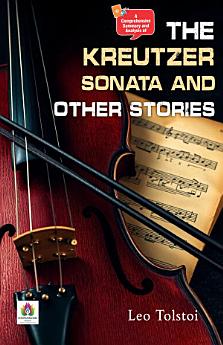A Comprehensive Summary and Analysis of The Kreutzer Sonata and other Stories: Demanding Ebook Book
About this ebook
Accompanying this masterpiece are several other compelling stories: - “A Lesson of ‘The Kreutzer Sonata’” – A reflective commentary on the moral lessons of the titular story. - “Ivan the Fool” – A fable about the triumph of simplicity and humility over greed and cunning. - “A Lost Opportunity” – A poignant tale about missed chances and the consequences of pride. - “Polikushka” – A tragic exploration of social injustice and human vulnerability. - “The Candle” – A story about spiritual awakening and redemption.
Tolstoy’s narratives are deeply philosophical, reflecting his evolving views on love, spirituality, and the search for moral truth. His vivid characters and intense emotional depth make this collection a timeless exploration of human nature and the moral dilemmas we face in life.
Ratings and reviews
- Flag inappropriate
About the author
Leo Tolstoy (1828–1910) is one of the greatest figures in Russian literature and world literature. Known for his masterpieces such as “War and Peace” and “Anna Karenina,” Tolstoy’s works are renowned for their deep exploration of human psychology, moral conflict, and the complexities of human relationships. His writing reflects his profound philosophical and religious transformation in the latter part of his life, focusing on the moral and spiritual dimensions of existence. Tolstoy’s characters grapple with questions of faith, love, marriage, and moral integrity, making his works timeless reflections on the human condition. In The Kreutzer Sonata and Other Stories, Tolstoy explores the tension between sexual desire and spiritual purity, the destructive nature of jealousy, and the search for true moral clarity. His ability to portray the psychological depth of his characters and the moral dilemmas they face makes Tolstoy a master of realistic and philosophical fiction.








